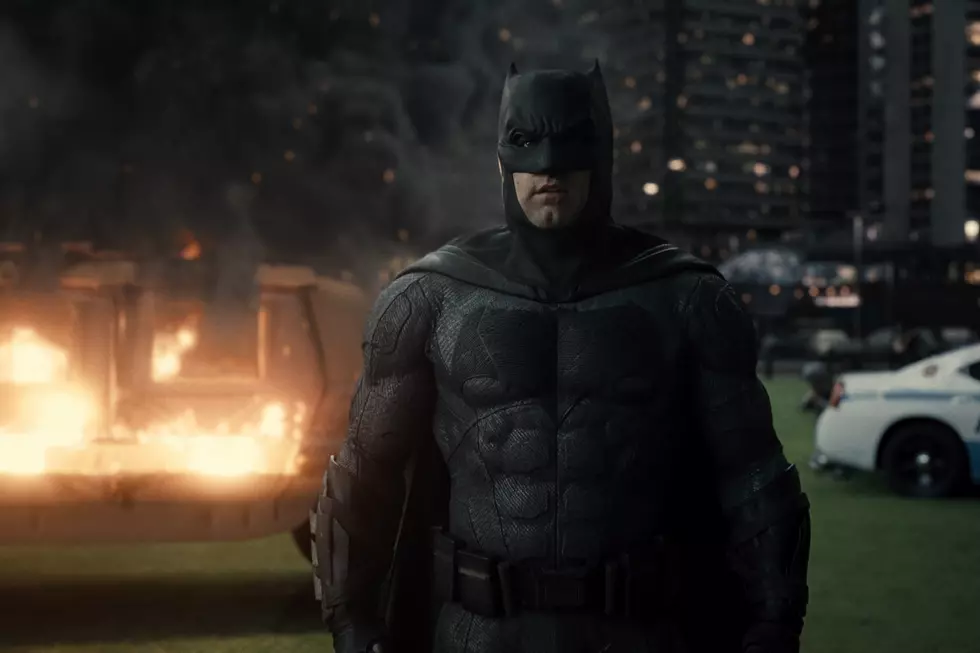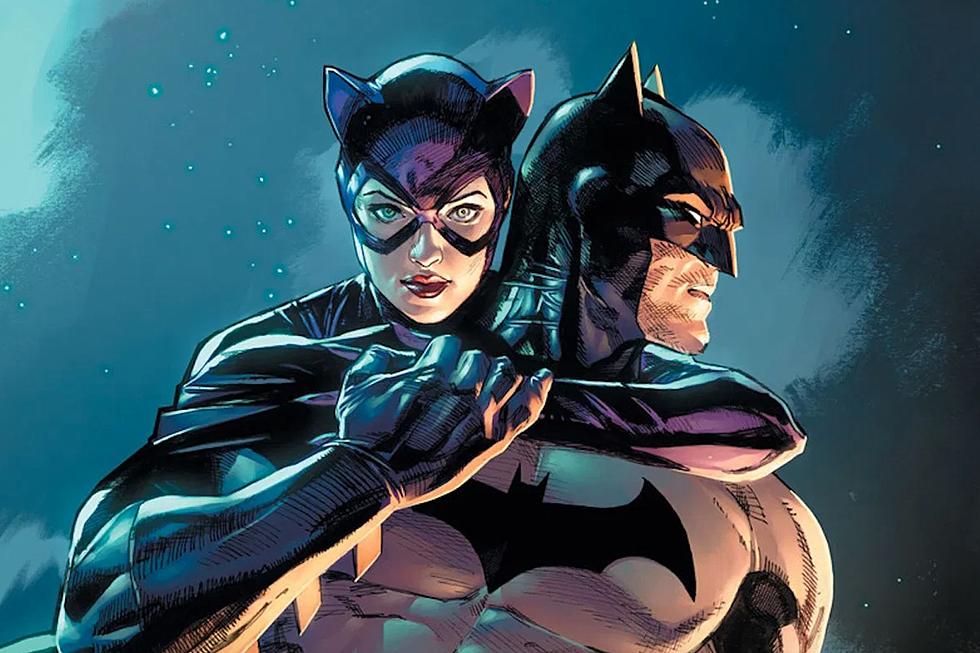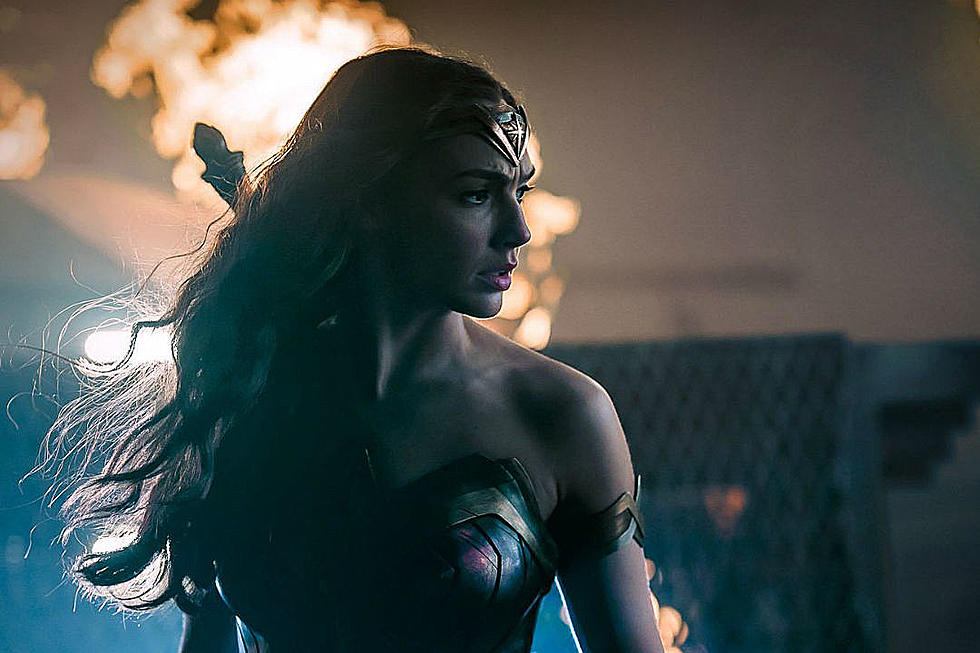
Optimism and Cynicism In ‘The Avengers’ and ‘The Dark Knight’

In the weeks leading up to the release of The Dark Knight Rises, there were a lot of debates over the relative merits of Joss Whedon's Avengers film and TDKR's predecessor, Christopher Nolan's The Dark Knight. When you get right down to it, that was inevitable: Avengers was a monumental success, with four years of buildup designed to create a series-spanning mega-franchise that would reflect the shared universe of the comic books that inspired it and managed to rack up a billion dollars in about a month, and The Dark Knight was an Academy Award winning smash hit that was also no slouch at the box office. They both stand out as huge milestones of super-hero storytelling that people have really responded to.
But whether it's the basis of a review or just something that comes up in conversations I've had with my friends, there was an underlying theme of a lot of those comparisons. They constructed a narrative where the success of The Avengers was due to its optimism, a bright beacon of heroism that stood in contrast to the grim and cynical events of The Dark Knight. It's an interesting idea.
But here's the thing: It doesn't really work.Even putting aside the other movies in each franchise, the idea that The Avengers is a ruthlessly optimistic story that's somehow less cynical than The Dark Knight is a narrative that isn't supported by what actually happens in either film. As near as I can tell, it seems to be rooted in people mistaking a movie that takes place mostly during the daytime as being metaphorically "brighter" than one that takes place mostly at night.
The argument falls apart as soon as you look at The Dark Knight, a movie that's completely focused on questions of morality and heroism. The villain's goal isn't to take over the world, or even to destroy Gotham City, it's to spread chaos, and sow fear and mistrust in its people. The Joker wants to bring out the worst in everyone, showing how fragile their morality is by forcing them to break it. It's literalized in the final stages of his plan, where he has the two ferries rigged to blow unless one group of people takes it upon themselves to execute the others to save their own lives. It's meant to be his ultimate thesis, showing that in the right situation, anyone can become a murderer, either through their own action or by failing to stand up to those around them. His plan isn't for those people to die, but to live with the knowledge that they've killed.

It's worth noting that one ferry is entirely populated with criminals, but that the Joker never intends for them to be the ones who pull the trigger. Instead, they're there to make it especially alluring for the "ordinary citizens" to kill them. If it were any other group of people, the temptation to mete out a death sentence would be lessened, as would the fear that these unseen killers and thieves would be seconds away from pushing their own button. That's what makes the plan so sinister: That those ordinary citizens could feel completely and utterly justified in their actions. It's that element that gives the Joker the confidence that he can manipulate things to the point where anyone, no matter who they are, will give up their morality in the name of their own survival. As far as he's concerned, it's an absolute, incontrovertible fact that people are completely and utterly unwilling to put the needs of others before their own. In effect, he's cynicism personified.

And when the people of Gotham City -- a place that's identified in Batman Begins as being engineered by Ra's al-Ghul to be the most corrupt, irredeemable city in the world -- decide that they'd rather die than turn on each other? It's the one moment in the entire film that the Joker's surprised, because it's something he never would've expected. It's Batman's crowning victory, but not because he wins a fight. It's because the actions of one man have led a society to stand against fear and hatred and choose to live and die with each other. It's a battle between hope and cynicism, and hope wins.
That's not to say that The Dark Knight is an entirely cheery affair, because it's far from it. Rachel, the one representation of happiness that Bruce Wayne could have outside of Batman, is taken away when she's killed by the Joker, and Alfred lies about her feelings to spare his heart. Harvey Dent's story in particular is the story of a good man driven over the edge by tragedy, but that's also a contrast to how tragedy shaped Bruce Wayne into someone who could make the world better. Gotham itself is still an awful place poised on the brink of collapse, but even the idea that it had to be pushed, that it's only that bad because external forces acted to make it so, that it would've gotten better if the League of Shadows hadn't taken steps to keep driving it down, has a glimmer of optimism to it.
That darkness is a part of the film, but the themes Christopher Nolan works with in The Dark Knight and its sequel are downright blinding. At it's heart, it's the story of how sacrifices do matter, and how, as Batman explicitly says at the end, "sometimes, people deserve to have their faith rewarded." Even putting aside how it all shakes out in the third film, and how those ideas of sacrifice, morality and rising above our mistakes are reinforced over and over again, that's not cynical.
At the same time, The Avengers didn't really strike me as all that optimistic. There are certainly heroic characters that band together to fight an evil force and save the world, and the scene where Captain America and Iron Man immediately put aside their personal issues to team up and save people is one of my favorite moments in the entire film. But there's a lot in there that's pretty grim.

After all, the motivating force for the Avengers to rally up and act as a team is based on a lie told by Nick Fury, because apparently Agent Coulson's death wouldn't have had the same impact without a handful of bloody trading cards to go with it. They're manipulated into heroism, in the same way that Gotham City is manipulated by the lie of Harvey Dent's death. And as dark as the society may be at the start of The Dark Knight, the Avengers exist in a world where faceless bureaucrats are willing to drop a nuclear missile on Manhattan rather than trust the heroes -- a nuclear missile that Iron Man disposes of by throwing it at the bad guys instead.
That last aspect plays into a pretty interesting trend in the Avengers franchise and its attitude towards killing. One of the first things to happen in the series, the very first thing that Tony Stark does once he builds his Iron Man armor, is straight up kill a bunch of dudes with a flamethrower, and he later returns once he has better armor so that he can kill them more efficiently. Of course, that's part of Tony Stark's journey over the course of those films, as he moves towards heroism and away from the self-interested playboy that he starts as. But the same thing happens in Captain America, and there, it's easy to write off because there's a war going on and Cap's up against Hydra, who are essentially Nazis by way of Cobra from G.I. Joe. But then you get to Avengers, and Cap casually throwing an enemy soldier -- a human enemy soldier, a person -- to his death.
It's the easiest thing in the world to justify. Steve Rogers is a soldier, trained in the army, and for him, it's only been a few weeks since he was in the middle of World War II. On one level, it makes perfect sense that he'd act and fight as a soldier. But saying that Captain America should be perfectly willing to kill his enemies is, at best, pragmatism. And once he's going by the name "Captain America," once he's in a costume, standing next to a guy in a flying suit of armor and another guy swinging around a magic hammer, once he's a super-hero, the idea that he'd "have" to kill someone starts to come off as more than a little cynical. In comics, super-heroes went decades without killing anybody, so it's not like it's a necessary element to include. In fact, one of the most beautiful, poetic things about Captain America's character is that he's a soldier who doesn't carry a weapon. He carries a shield, something that's inherently built to defend against an attack. As much as he throws it around and clocks Nazis upside the head -- which I'm all for, trust me -- that's his symbol.
What it really comes down to, though, is that The Avengers doesn't feature a moral victory. The bad guy, Loki -- a master of lies and deception -- isn't defeated because of goodness, or hope, or even by the ol' saw that is teamwork. He's defeated by an overwhelming physical force. Hell, he's literally picked up and slammed into the ground over and over again until he can't stand up by a giant monster fueled by endless rage.

It's a hell of a lot of fun to watch, but thematically, it's not exactly bright. There's no indication that the Avengers have shown anyone a better way, they just happen to hit harder. They're Earth's Might-Makes-Rightiest Heroes.
But that's not a bad thing, either. The two movies' attitudes towards morality and optimism don't make one better than the other, and in fact, they actually do a great job of reflecting the differences in their source material. Batman was made to be exactly what it says in the title of that movie: A Knight. He's a champion of justice who could fight against a world that had fallen so far that a child's parents could be murdered in front of him for no reason, fueled by pure determination and the hope that he could make a better world. Stan Lee, Jack Kirby and Don Heck, on the other hand, created characters that were flawed, that the audience could identify with, and their victories come from overcoming those flaws.
The fact that the Avengers don't get a moral triumph over Loki is one of the things that makes that movie great, because they can't. I wrote above about Captain America's shield and how beautiful that metaphor is, but Thor and Loki's relationship is every bit as steeped in symbolism, and the way he's beaten reflects that perfectly. The central tragedy of that film is that Loki is destined by his very nature to hate Thor forever. Thor and his fellow Avengers get the victory, but he'll never have his brother back. He'll always have an enemy, eternal and unchanging, for the rest of his immortal life. Loki can never change, and Thor can never change him -- that is a pretty cynical view, but it's a also a tragedy that we can all relate to that stands at the core of his character.
That's what makes those characters so compelling. Not optimism, not cynicism. Character.
More From ComicsAlliance









